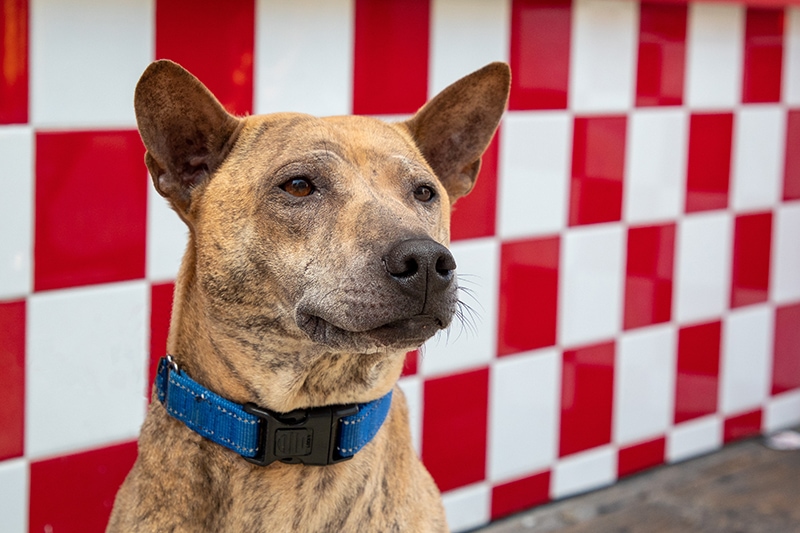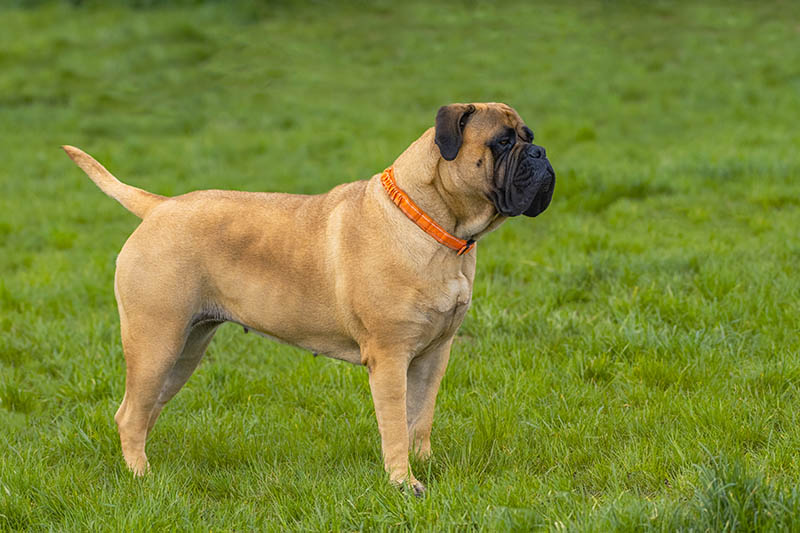The 20 Best Therapy Dog Breeds (With Pictures)
Updated on
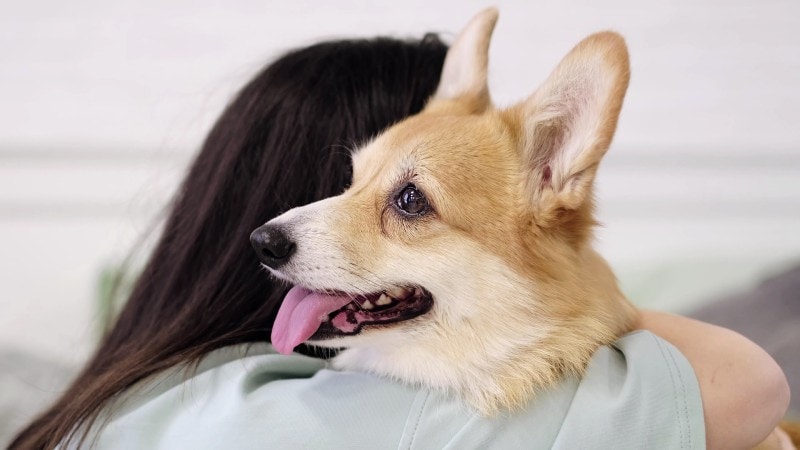
Click to Skip Ahead
Whether they are comforting first responders in disaster zones or giving a shy child the confidence to read aloud, trained therapy dogs serve many functions. If you’ve ever had the privilege to see these dogs in action, you know the impact they can have. Not every dog is suited for therapy work, however, as it requires a unique combination of tolerance, friendliness, a calm personality, and intelligence. Here are 20 of the best breeds to train as therapy dogs.
Large Therapy Dog Breeds
1. Golden Retriever
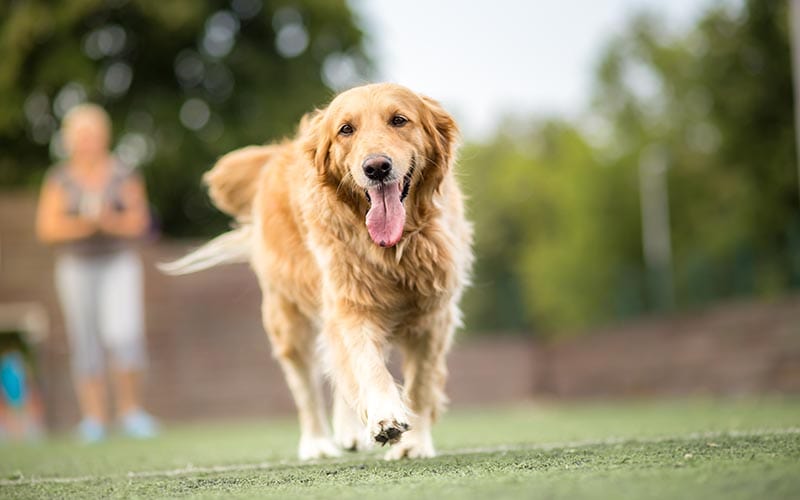
| Height: | 21.5–24 inches |
| Weight: | 55–75 pounds |
Golden Retrievers are an ideal breed to train for therapy work because they have one of the sweetest and friendliest temperaments of any dog. They are also intelligent and usually easy to train because they want to please their humans so much.
Goldens love kids and are generally tolerant and calm no matter the situation. Their tails never seem to stop wagging, which makes them approachable, even for those who are afraid of dogs. Young Golden Retrievers can be a bit excitable until they mature.
2. Labrador Retriever
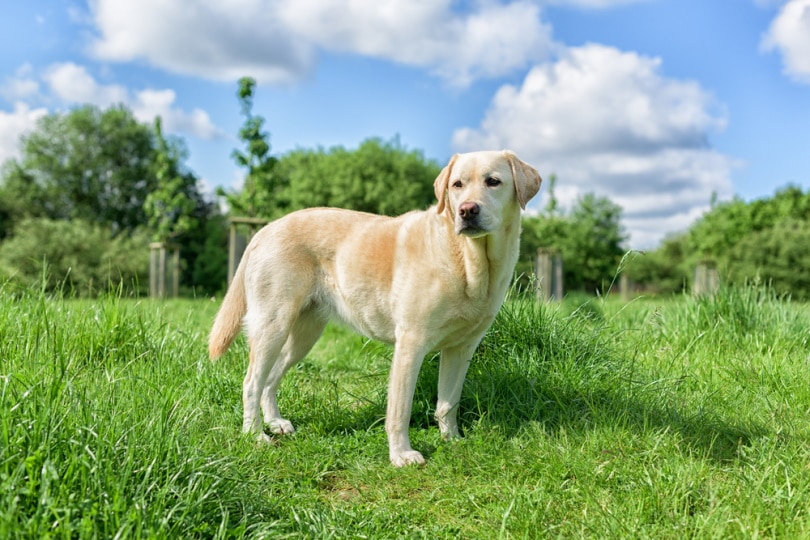
| Height: | 21.5–24 inches |
| Weight: | 55–80 pounds |
Labrador Retrievers can seemingly do it all, so why not train one as a therapy dog? Originally bred to work as hunting companions, this breed’s outgoing nature, intelligence, and willingness also make them ideal for various jobs.
Labs serve as guides, detection dogs, search-and-rescue dogs, and many other occupations. Since it’s friendly, smart, and tolerant, the Golden Retriever is one of the top choices to train as a therapy dog. They tend to be more energetic than Goldens, especially in the first few years of life.
3. German Shepherd
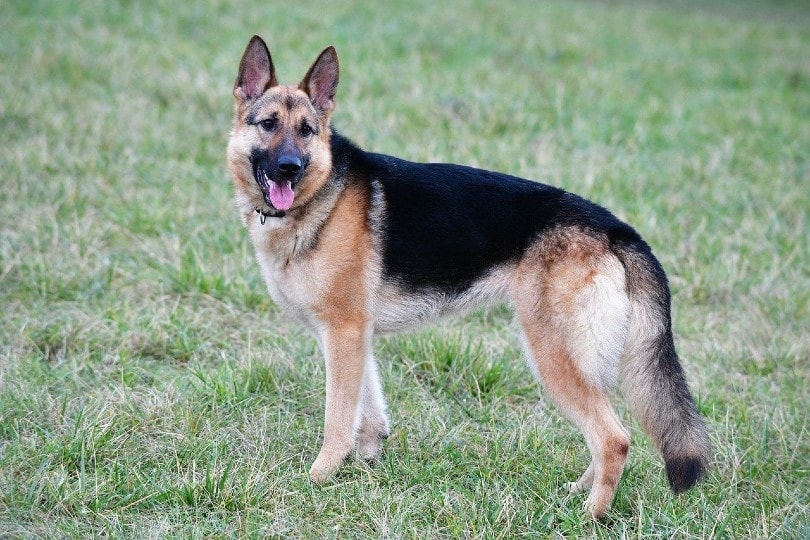
| Height: | 22–26 inches |
| Weight: | 50–90 pounds |
German Shepherds are one of the best-known breeds and most popular working dogs in the world. They are incredibly intelligent and usually soak up training quickly. Since they’re naturally more protective than the happy-go-lucky retriever breeds, you will need to spend more time socializing a young German Shepherd that you plan to train for therapy work to help them learn to stay calm.
Well-trained and socialized German Shepherds are loving, attentive, and patient, especially with kids. This breed is naturally more intimidating to people than others, however, so you may have to overcome this stigma.
4. Greyhound
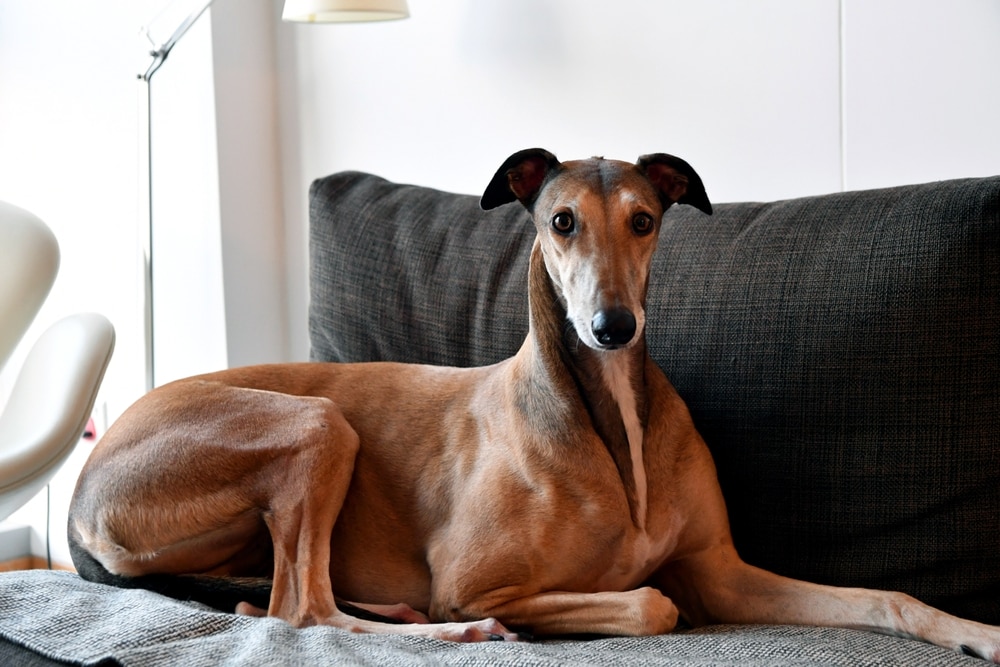
| Height: | 27–30 inches |
| Weight: | 60–70 pounds |
Although they’re best known for their incredible speed, Greyhounds are remarkably calm and tranquil. They are affectionate dogs but sometimes less so with strangers, so socialization is vital. Many Greyhounds are adopted as retired racing dogs, which typically puts them a bit behind in their socialization.
They can also be independent and do best with an experienced person training them. Most Greyhounds are happy to adapt to whatever comes their way, which is another trait that makes them a good choice for therapy work.
5. Standard Poodle
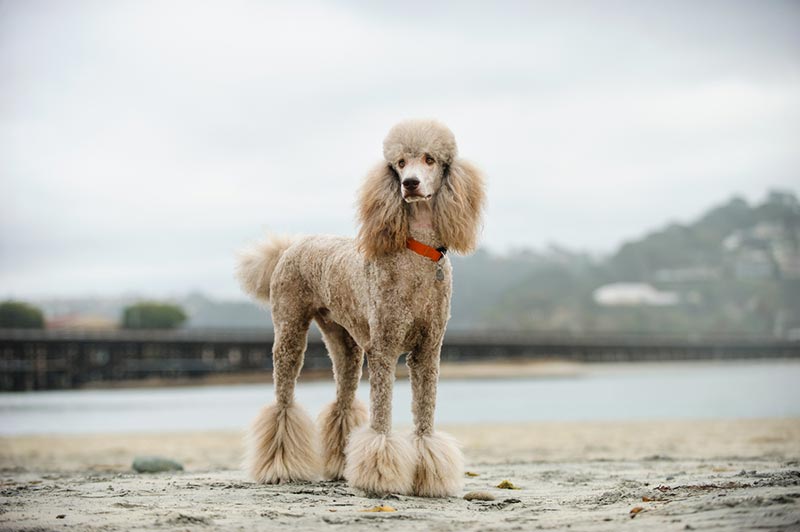
| Height: | 15+ inches |
| Weight: | 40–70 pounds |
Poodles of any size make excellent therapy dogs. Their sweet expressions and often outlandish haircuts are sure to bring a smile and set people at ease as soon as they see them. Poodles are also among the smartest breeds and eager to please their owners, making them easy to train.
The low-shedding, allergy-friendly coat of a Poodle is a bonus. Standard Poodles love people of all ages, and their size makes them sturdy enough to withstand attention from excited kids without being too scary.
6. Newfoundland
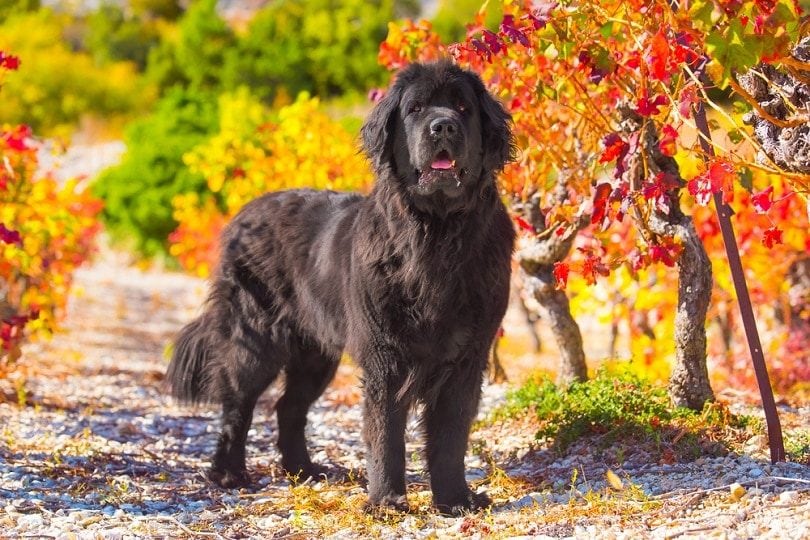
| Height: | 26–28 inches |
| Weight: | 100–150 pounds |
This famous water rescue breed might seem like an odd choice for therapy work, but their sweet and patient personalities and soft, huggable coats earn them a place on our list. A Newfoundland’s size may be intimidating to some people, but its calm demeanor usually goes a long way to help relax the atmosphere.
Newfoundlands enjoy people and are usually quiet dogs. They are especially good with children, with a long history of serving as “nanny dogs.” The breed is typically easy to train and eager to please. They tend to drool sometimes and are not low-shedding dogs!
7. Border Collie
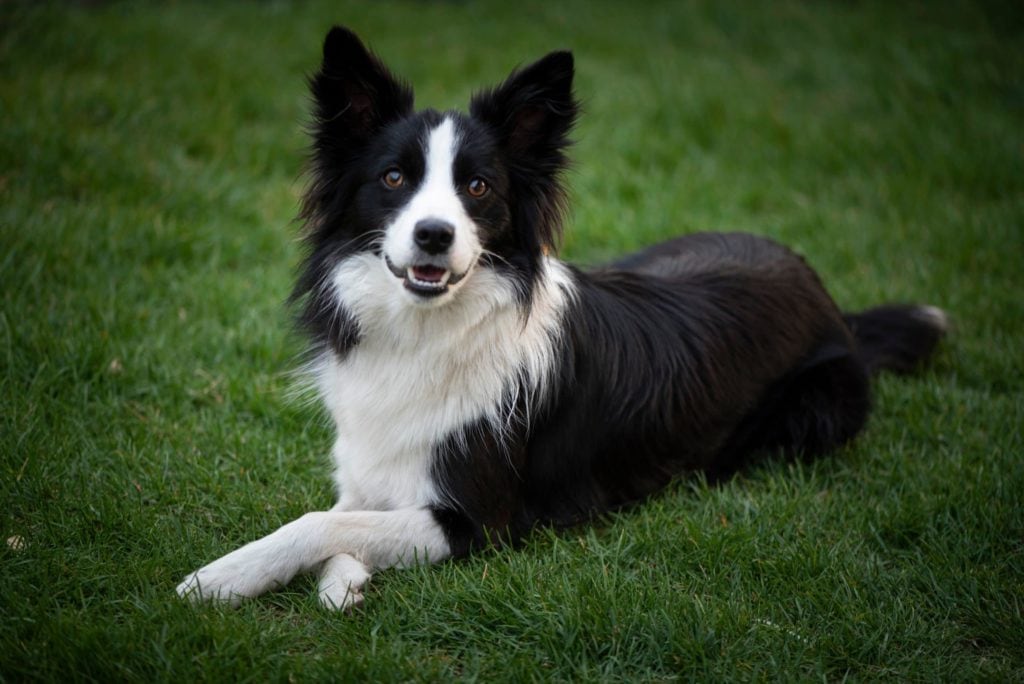
| Height: | 18–22 inches |
| Weight: | 30–55 pounds |
Generally recognized as the smartest dog breed, Border Collies are an excellent choice to train for therapy work. They are outgoing and friendly dogs that enjoy attention. However, they have a high energy level that will need to be managed if they’re asked to serve in a quieter environment, like a senior center or hospital.
Border Collies are a good size and sturdy enough to stay safe in a crowd but not so big as to be frightening. They are playful and cheerful, with a happy “smile” that helps lift any mood.
8. Great Dane
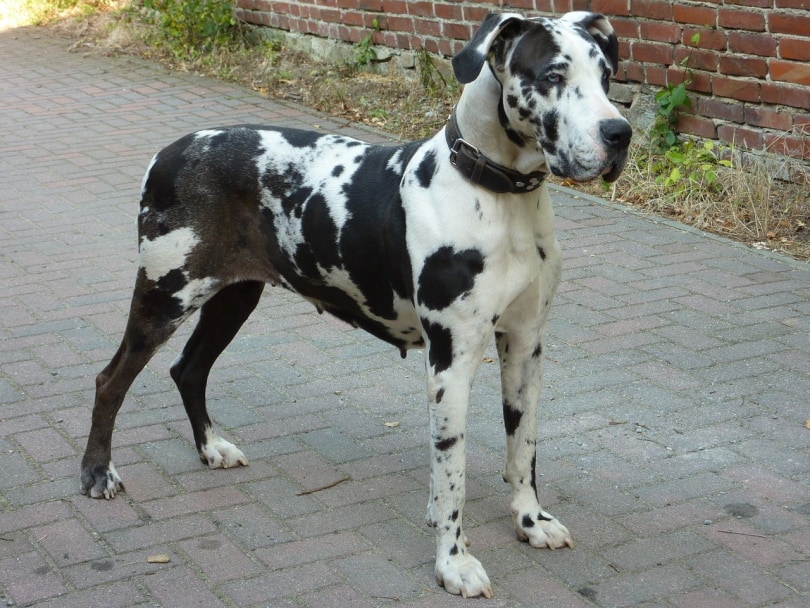
| Height: | 28–32 inches |
| Weight: | 110–175 pounds |
While their size might be intimidating to some people, the Great Dane is a gentle giant that with proper training, can make a great therapy dog. They are loyal and affectionate, and their size can actually be an advantage in certain therapy scenarios.
9. Labradoodle
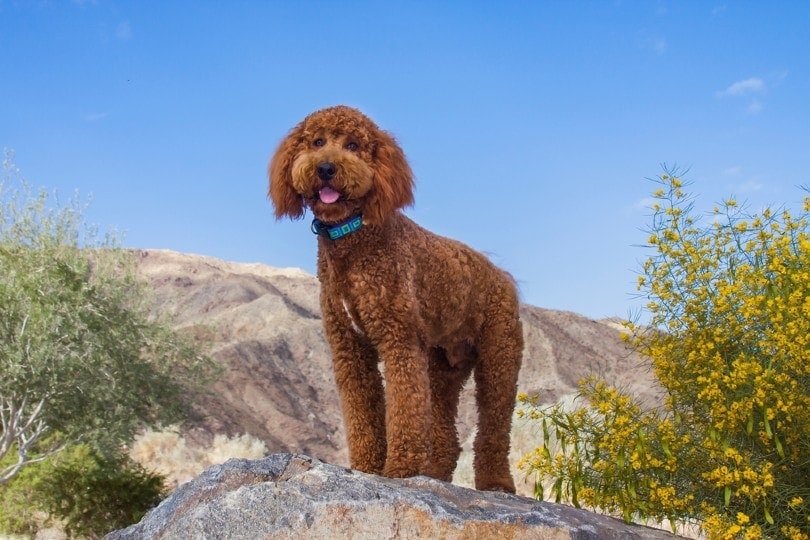
| Height: | 17–24 inches |
| Weight: | 30–65 pounds |
Labradoodles combine two breeds already on our list: the Lab and the Poodle. They usually have friendly and playful personalities, although as a mixed-breed dog, it can be a little bit harder to predict their usual traits. Labradoodles generally don’t shed much, which is a good selling point for any therapy dog. Most are happy to please their owners, making them easy to train.
10. English Setter
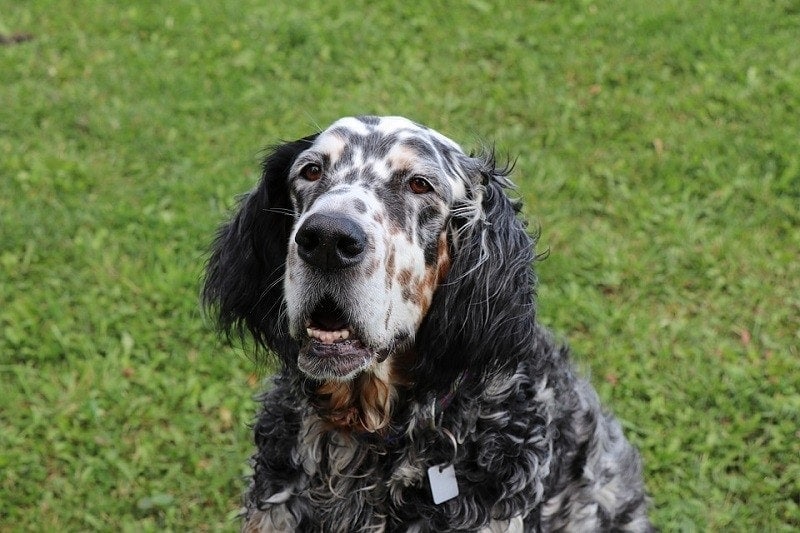
| Height: | 23–27 inches |
| Weight: | 45–80 pounds |
Although initially bred as hunting companions, English Setters are also an excellent breed to train for therapy work. They are gentle, happy, and friendly dogs that love making new friends. They’re less energetic than many hunting breeds and have a calm and soothing presence that makes you want to cuddle with them.
Sensitive English Setters learn quickly with positive training methods. They may not be as well-known as some of the other breeds on our list, but their potential as therapy dogs deserves your attention.
Small Therapy Dog Breeds
11. Cavalier King Charles Spaniel
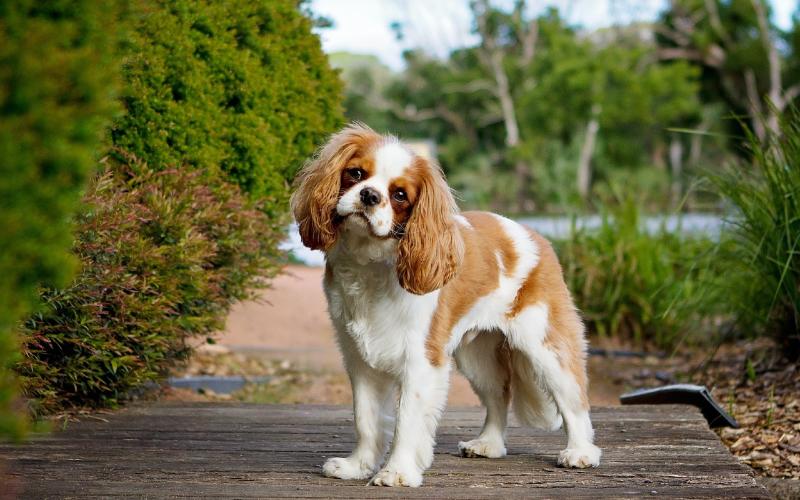
| Height: | 12–13 inches |
| Weight: | 13–18 pounds |
This breed usually acts as if they’ve never met a stranger, making them one of the best small dogs to train for therapy work. Cavalier King Charles Spaniels never seem to stop wagging their tails, no matter the situation. They are calm and adaptable dogs and happy to be with people.
Cavalier King Charles Spaniels are a good size for kids and enjoy their company. These affectionate dogs are happy to play or content to sit on your lap.
12. Beagle
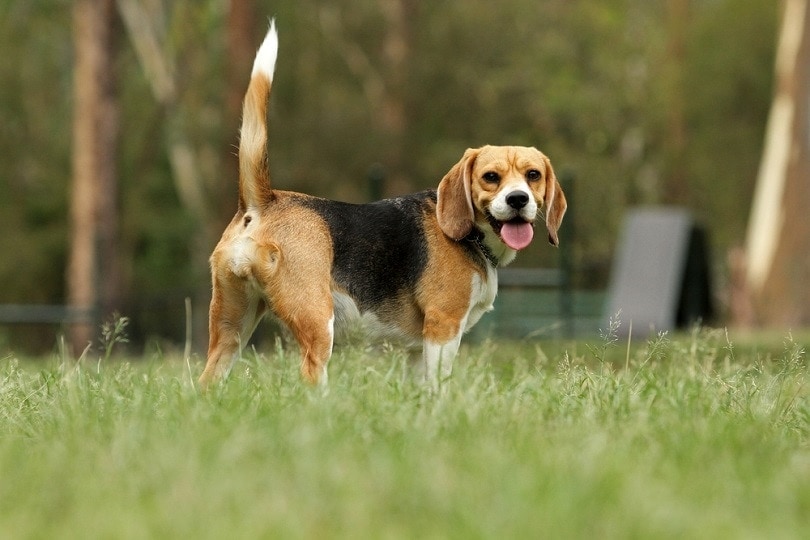
| Height: | Under 13 or 13–15 inches |
| Weight: | Under 20 or 20–30 pounds |
Endlessly cheerful Beagles approach every life scenario with enthusiasm, and therapy work is no exception. Always friendly and happy, Beagles can be found serving as pets, hunting dogs, and even sniffing your luggage at the airport.
Thanks to their love of food, Beagles can be trained fairly quickly, but they have a stubborn streak. However, beagles aren’t the quietest of pups, which may limit some situations where they can serve as therapy dogs.
13. Pug
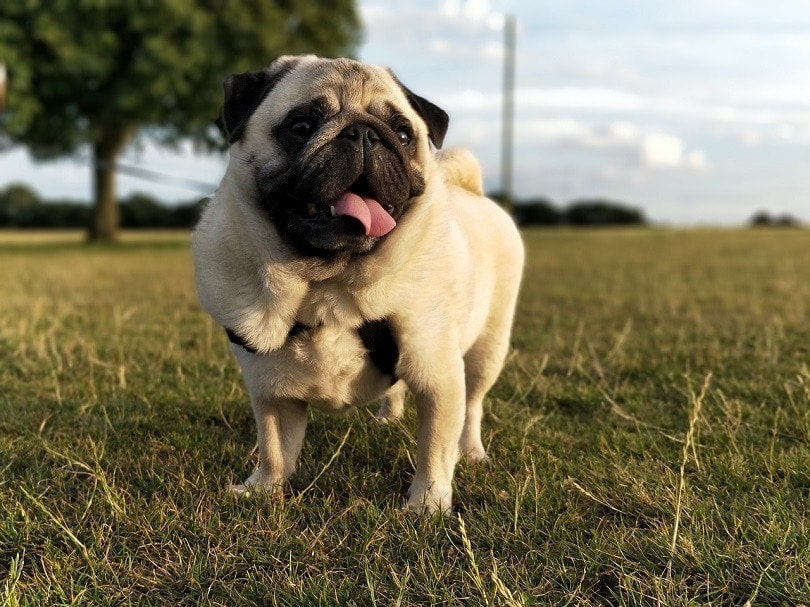
| Height: | 10–13 inches |
| Weight: | 14–18 pounds |
With their cute, curled tails and adorable faces, Pugs are hard to resist and almost always bring a smile to your face. Pugs are playful and affectionate with friends and strangers alike and are well-suited for therapy work. They are usually good with kids, and their charming personalities are never switched off. Because they bond so closely with people, Pugs are generally easy to train. As a flat-faced breed, Pugs sometimes suffer from breathing issues and don’t tolerate hot weather well, which may limit some situations where they can work as therapy dogs.
14. French Bulldog
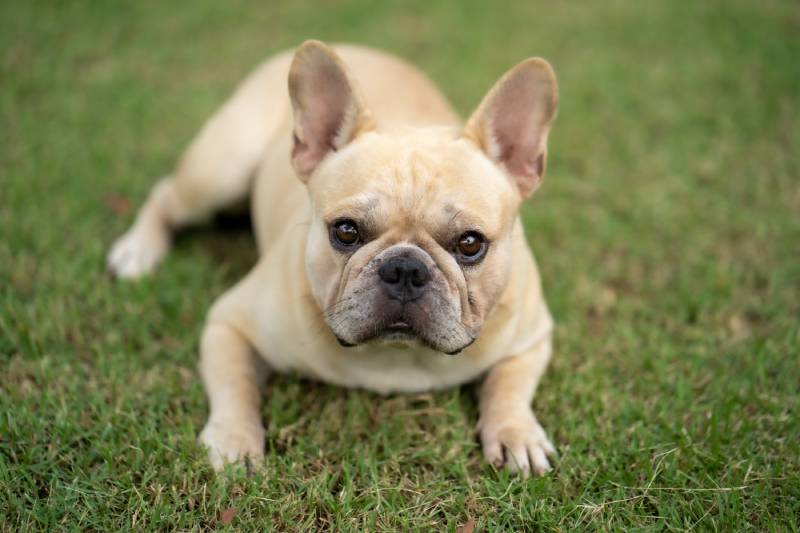
| Height: | 11–13 inches |
| Weight: | Under 28 pounds |
They’re packed with personality and one of the cutest dogs you can find; there’s a reason French Bulldogs rank second only to Labradors in popularity. Frenchies are an excellent breed to train for therapy work because they love people and are generally very quiet dogs. They’re charming and playful and always happy to meet new admirers.
Although they enjoy making their humans happy, Frenchies can be stubborn, and training them can sometimes be challenging. Like Pugs, French Bulldogs can suffer from breathing issues and heat intolerance due to their facial shape.
15. Bichon Frise
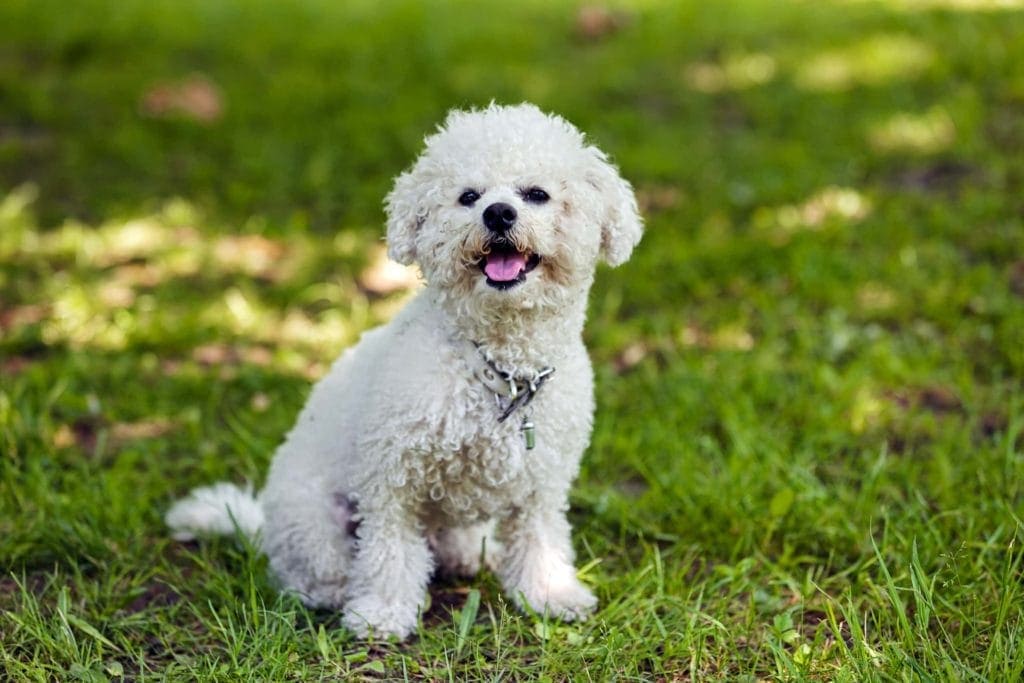
| Height: | 7–9 inches |
| Weight: | Under 7 pounds |
The allergy-friendly Bichon Frise is one of the best breeds to train for therapy work because of its larger-than-life personality. Bichons are friendly, happy, and charming dogs that love to entertain. They are easily trained and thrive on attention from family and strangers alike; Bichons love people of all ages. They are small enough not to scare children but also tolerate the enthusiasm of young ones. Bichons are confident and adaptable pups, which are also excellent traits for a therapy dog.
16. Maltese
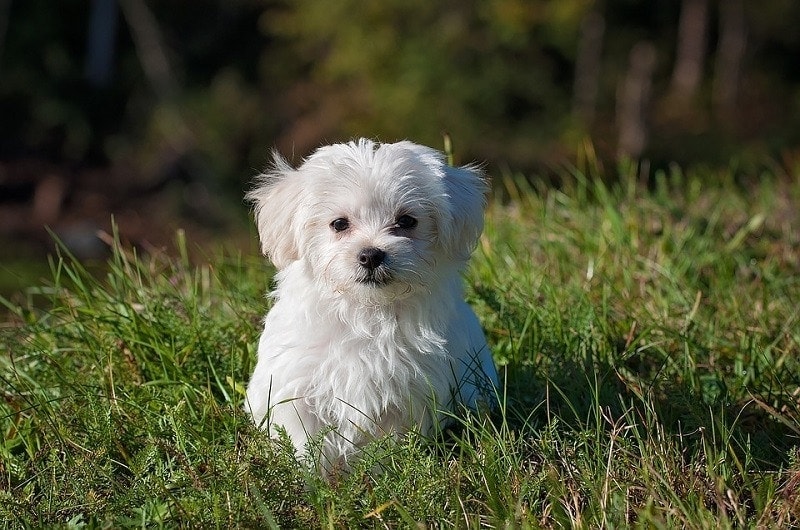
| Height: | 7–9 inches |
| Weight: | under 7 pounds |
The Maltese is one of the smallest breeds on our list, but their gentle, loving personalities make them a good choice for therapy work. Maltese just like being with people, although they are more likely to enjoy sitting in a lap or on a bed than joining in a game.
Because of their size, they aren’t the best choice for working as therapy dogs for kids. They aren’t high-energy pups, and because they don’t shed much, a Maltese may be best suited to working in places like senior living facilities or hospitals.
17. Yorkshire Terrier
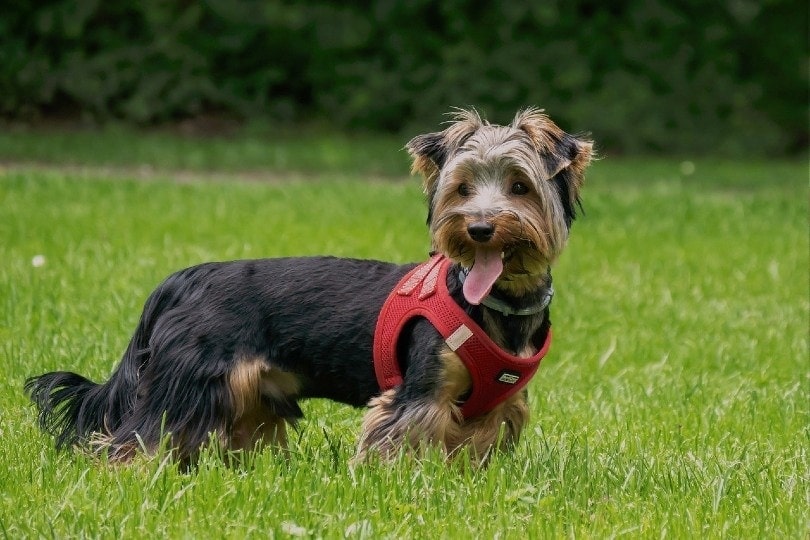
| Height: | 7–8 inches |
| Weight: | 7 pounds |
The Yorkshire Terrier is adorable, playful, allergy-friendly, and has just enough attitude to make them interesting. They love people and crave attention, just the right kind of personality for a good therapy dog.
Like the Maltese, they might not be the best choice for working with kids due to their size, but Yorkies usually get along with children. Yorkies are very smart dogs and are usually easily trained with patience and positivity.
18. Shih Tzu
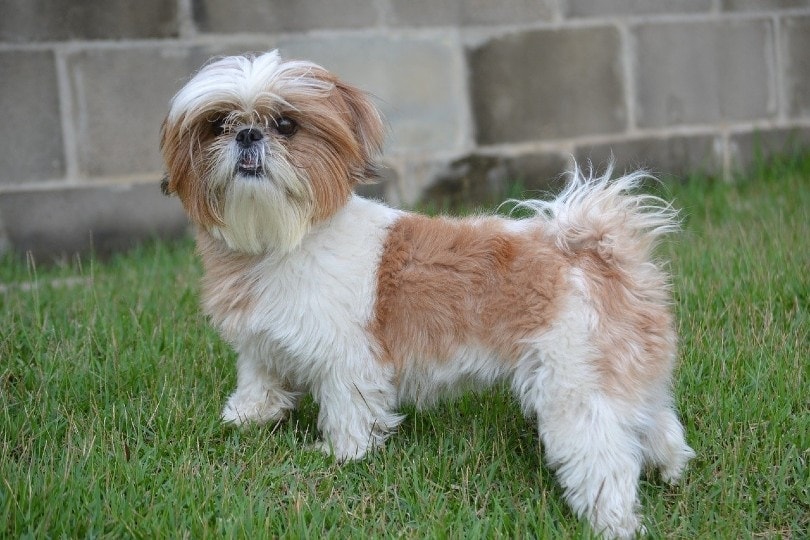
| Height: | 9–11 inches |
| Weight: | 9–16 pounds |
Shih Tzus are remarkably solid and sturdy for small dogs and a good size to serve as therapy dogs for all ages, including children. These scruffy little dogs are friendly and outgoing, happy to give and receive attention. Like many small dogs, Shih Tzus need to be socialized, especially as puppies, to ensure they remain calm in hectic environments.
They can be stubborn when it comes to training. Experienced dog owners are best suited to train the Shih Tzu for therapy work, but they can certainly get the job done.
19. Pembroke Welsh Corgi
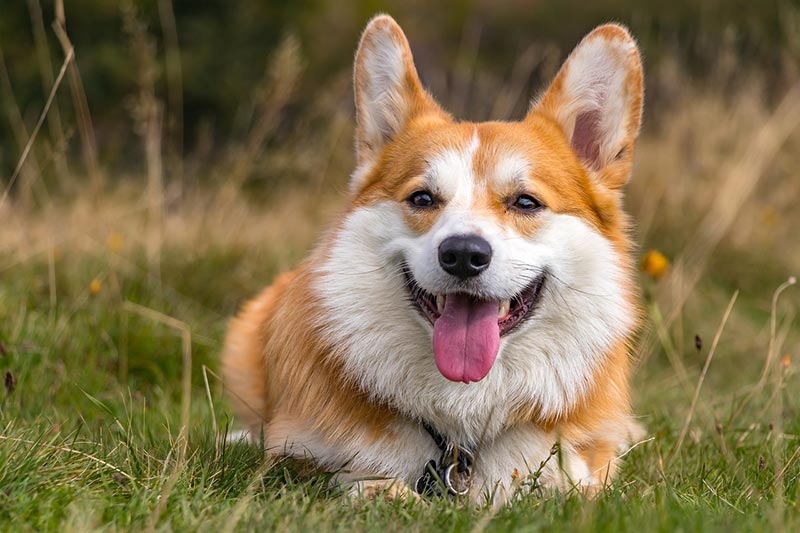
| Height: | 10–12 inches |
| Weight: | 26–30 pounds |
As masters of the happy wiggling dog butt, Corgis are another breed that can make excellent therapy dogs. The stub-tailed Pembroke Welsh Corgi is the better-known variety of this breed. Corgis are generally happy, agreeable, and friendly dogs that are always up for a new adventure.
They want to be involved in whatever their humans are doing and will likely view therapy work as just another activity you can do together. Corgis are intelligent but independent dogs that need patient training and socialization.
20. Shetland Sheepdog
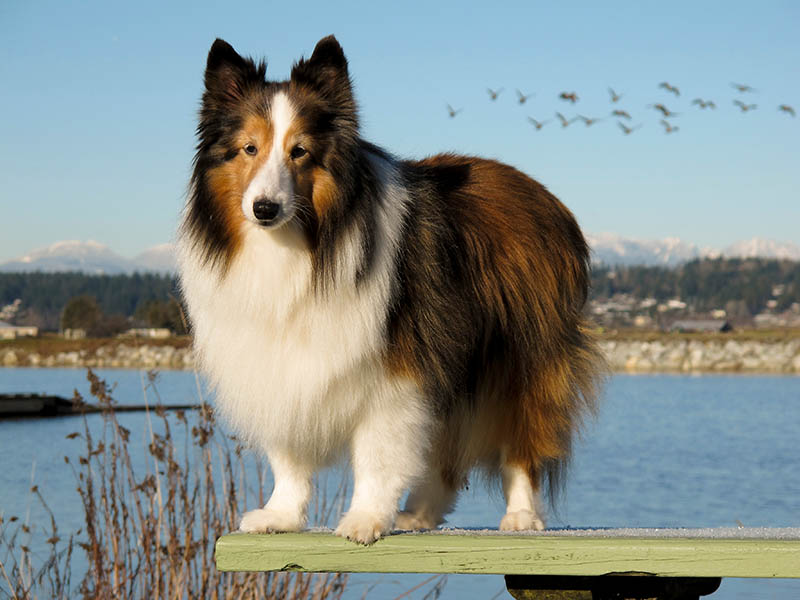
| Height: | 14–16 inches |
| Weight: | 14–20 pounds |
Gorgeous, gentle, and able to take whatever comes their way in stride, Shetland Sheepdogs are an excellent choice to train as a therapy dog. Shelties do tend to be a bit shy with strangers, so if you plan to train one as a therapy dog, take extra care to socialize them well.
Shetland Sheepdogs are smart and willing, making them easy to teach. You often see this breed competing in sports like agility, so they have some energy. Affectionate Shelties sometimes bark a lot, however, which is something to keep in mind depending on where they will be serving as therapy dogs.
Conclusion
While we focused (almost) exclusively on purebred dogs for our list, many mixed-breed dogs happily perform therapy work. As we mentioned in the introduction, the traits that make a good therapy dog aren’t exclusive to any breed.
The dog’s personality matters the most, along with the owner’s dedication to socializing and training them. If you’re interested in training your dog to be a therapy dog, look for groups in your area that offer classes and certification in this discipline.
See Also:
Featured Image Credit: Yavdat, Shutterstock



